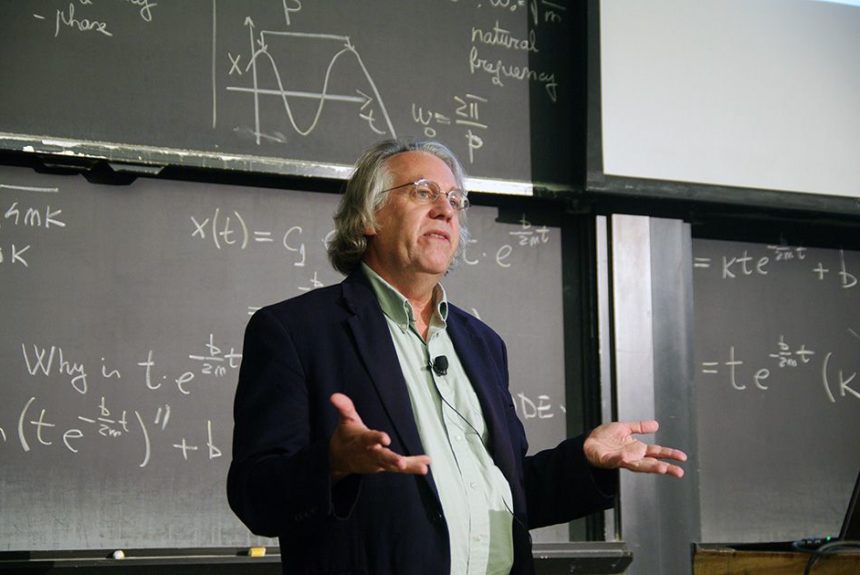Today, in continuation of our observation of Nuclear Energy Week, John Hart interviewed Dr. Kerry Emanuel. Emanuel is a professor of atmospheric science at the Massachusetts Institute of Technology (MIT). Dr. Emanuel has long advocated embracing nuclear energy to address climate change. He has authored several papers and essays on the subject including an essay titled Nuclear Salvation.
During the discussion, Hart and Dr. Emmanuel talked about the extremism that is prevalent on both sides of the aisle in the climate debate. Emmanuel said the debate needs to be focused on risk and how to reduce risk.
“The rational approach to risk is if viewers think about how they deal with their own risk in their own lives. For example, when they go out to buy insurance, property insurance or car insurance, you’re making a rational calculation. What’s the probability you’re going to wreck your car? How much are you willing to pay for it when it happens? So, there’s a rational process in assessing what’s at risk, how much does it cost, how much you’re willing to pay to avoid that or mitigate that risk. That’s how I think you have to look at the risks that are involved in climate change.”
He continued:
“On one side of the political spectrum [the risks are] hyped up to be much more than they are, and on the other side, they’re hyped down. That’s just, unfortunately, normal politics these days. But we who are interested in getting down to making rational decisions have to go about estimating what are the potential costs of climate change and given those costs what measures make financial sense to implement to mitigate that risk.”
To reduce and mitigate risk, Emmanuel has proposed transitioning less clean sources of energy to nuclear power across the globe. In his Nuclear Salvation, Emmanuel has estimated that the gross cost of this transition would be $500 billion per year, with total savings from health benefits being $400 billion, coming out to a net $100 billion annual cost through 2040, which is 0.1 percent of Gross World Product (GWP).
>>>Bud Albright Kicks off Nuclear Science Week
Next, the two discussed the politics of nuclear energy. What is often seen in the political discussion of climate is one side saying that we need “to follow and listen to the science.” Hart asked if Emmanuel feels “listened to.” Emmanuel, a climate scientist, said he feels as if he is not being listened to, especially by those on the Left, “On the Left, I’m frustrated because they’ve taken off the table the most promising tool to address [climate change], which is nuclear power.”
In some cases, Kerry believes that politicians on both sides are rejecting serious solutions and using the challenge of climate change to advance an agenda.
“This is what frustrates people like me. There’s a whole set of people who don’t think it’s a problem, there’s another set of people who see it as a valuable tool to advance agendas that may have nothing to do with climate. So, neither side, in some sense, is serious about it and that’s why nothing really has happened. There’s a lack of seriousness.”
>>>X-energy is leading the way in nuclear reactor, fuel design innovation
To fix this problem and advance nuclear energy in the United States, Dr. Emmanuel believes that we need to reform the nuclear permitting process.
“We have a very, very clumsy nuclear regulatory apparatus. Everybody knows it – Congress is actually trying to reform it, it’s not like nothing’s being done, but it’s happening too slowly. We’ve lost many, many years of innovation from that. We’ve made nuclear too safe. The Nuclear Regulatory Commission demands that plants be built to withstand a 1 in 10 million year event. That’s crazy! We don’t have any idea how to estimate a 1 in 10 million year event. It’s been made too safe and therefore too expensive and has driven us to depend much more on dangerous sources of energy.”
Hart quipped, “The best way to make something unsafe is for government to make it safe.”
As the world looks for serious solutions to climate change in the coming weeks at COP, global leaders and delegates would do well to heed the words of Dr. Kerry Emanuel and embrace nuclear energy. Advancing climate solutions that include nuclear energy would go a long way in reducing domestic and global emissions while providing crucial power to developing nations.
Read Dr. Emmanuel’s work here and listen to the full interview here.
The views and opinions expressed are those of the author’s and do not necessarily reflect the official policy or position of C3.
